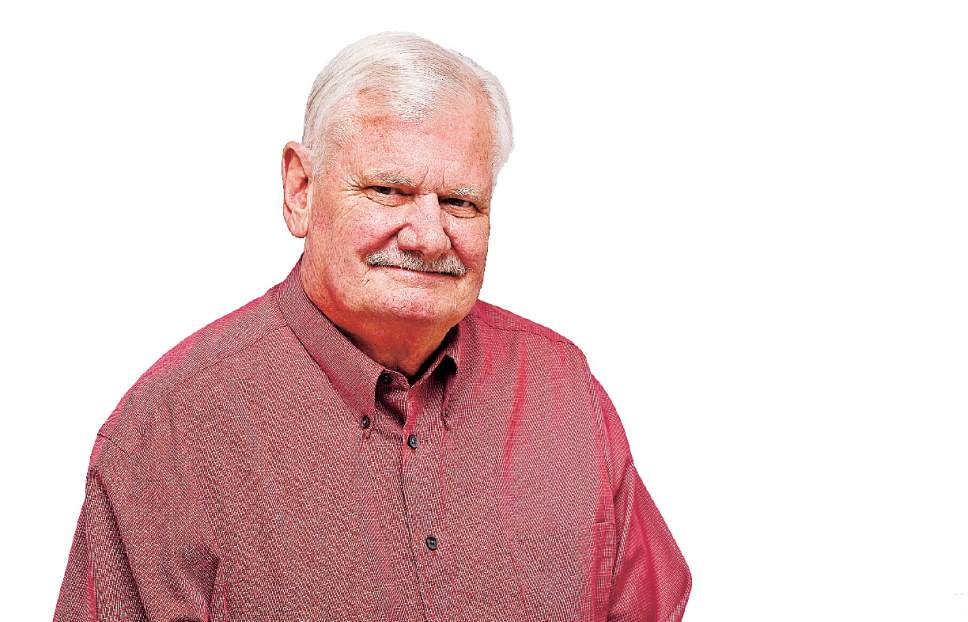This is an archived article that was published on sltrib.com in 2017, and information in the article may be outdated. It is provided only for personal research purposes and may not be reprinted.
Jim Webster was enjoying an early-evening walk in his neighborhood near the University of Utah recently when he came across at least 40 buses, he says, idling their diesel engines in a parking lot next to Guardsman Way.
That bothered him, but the frustration turned to anger when he returned to the area about two hours later, and they still were idling in the lot.
The buses were part of a contingent of up to 130 transport vehicles that brought patrons of a multilevel-marketing convention to Rice-Eccles Stadium.
The massive event attracted about 20,000 enthusiasts of Lehi-based Young Living Essential Oils. It lasted for three days in mid-June and included a Saturday evening concert.
Webster and his neighbors in the Yalecrest area have expressed concern about Salt Lake City's dirty air in the past and adding 40 pollution-spewing buses into the mix was a bit much.
He and others from the Yalecrest Community Council called the city and the U. They also solicited the help of Brian Moench, of Utah Physicians for a Healthy Environment, who contacted the Lehi company and expressed the neighborhood's angst.
That was after the fact. Earlier, the U. had posted a notice warning of traffic problems around the stadium those three days, including road closures to accommodate all the buses.
But the city has an anti-idling ordinance that, thanks to the Utah Legislature, has no real effect. The City Council passed the measure in 2011 that bars idling for longer than two minutes except for some exempted areas.
Some legislators, however, apparently believe that preventing red-blooded Americans from exercising their inalienable right to pollute the air is government overreach.
So, in 2012, the Legislature approved HB104, which basically decreed that anti-idling ordinances should be educational, rather than punitive, in nature. The state law requires three warnings be issued to an engine idler before a fine can be issued.
In that light, on the first two nights of the conference, city enforcement officers handed out educational pamphlets to the bus idlers, said Debbie Lyons, director of the city's sustainability program. On the third night, the idling buses were in a gated area in the parking lot used for tailgating before football games, a protected area under the statute.
So just like the time the Legislature passed a law allowing for more powerful fireworks and a longer window of opportunity to use them than the city originally wanted, your state lawmakers are standing up for individual liberties of polluters over the rights of those liberal Salt Lake City folks to breathe.
Absentee policymaking • The sad saga of Salt Lake County Recorder Gary Ott may be winding down, with a judge recently ruling that the siblings of Ott, who has shown signs of mental decline, can make legal decisions for him.
That means they can decide for Ott to resign in the wake of him holding onto a job his county peers have determined he is no longer able to fulfill, while his top two assistants continue to guard him from public contact and insist the office is running fine.
A mini-emergency from a few days ago shows just how problematic that can be.
The county has been testing its new DARWIN software system for eventual launch once all the offices dealing with tax issues are online and able to communicate with one another.
But the recorder's office, under the control of Chief Deputy Recorder Julie Dole, went live with the system independently and began recording real estate transactions. Other offices complained they weren't ready to activate their systems yet and were unsure if the software transmissions would work in their departments.
A minor panic erupted because the recorded real estate transactions are then used by the county assessor to determine property taxes and by the county treasurer to prepare tax notices along with numerous other departments that play a role in the process.
It's a big deal because the county processes about 10,000 transactions a month.
Up to 30 division directors, information technology managers and elected officials have exchanged dozens of emails in the past two weeks to determine the level of confusion from the actions taken by the recorder's office and any corrections that need to be made.
Dole counters that the recorder's office has been working on implementing the new software for more than a year and has been giving weekly updates to the other county departments. When it decided to go live with the system, she says, her office let the other offices know. They should have been ready for the change, she adds, and, if they weren't, it's their own fault.





